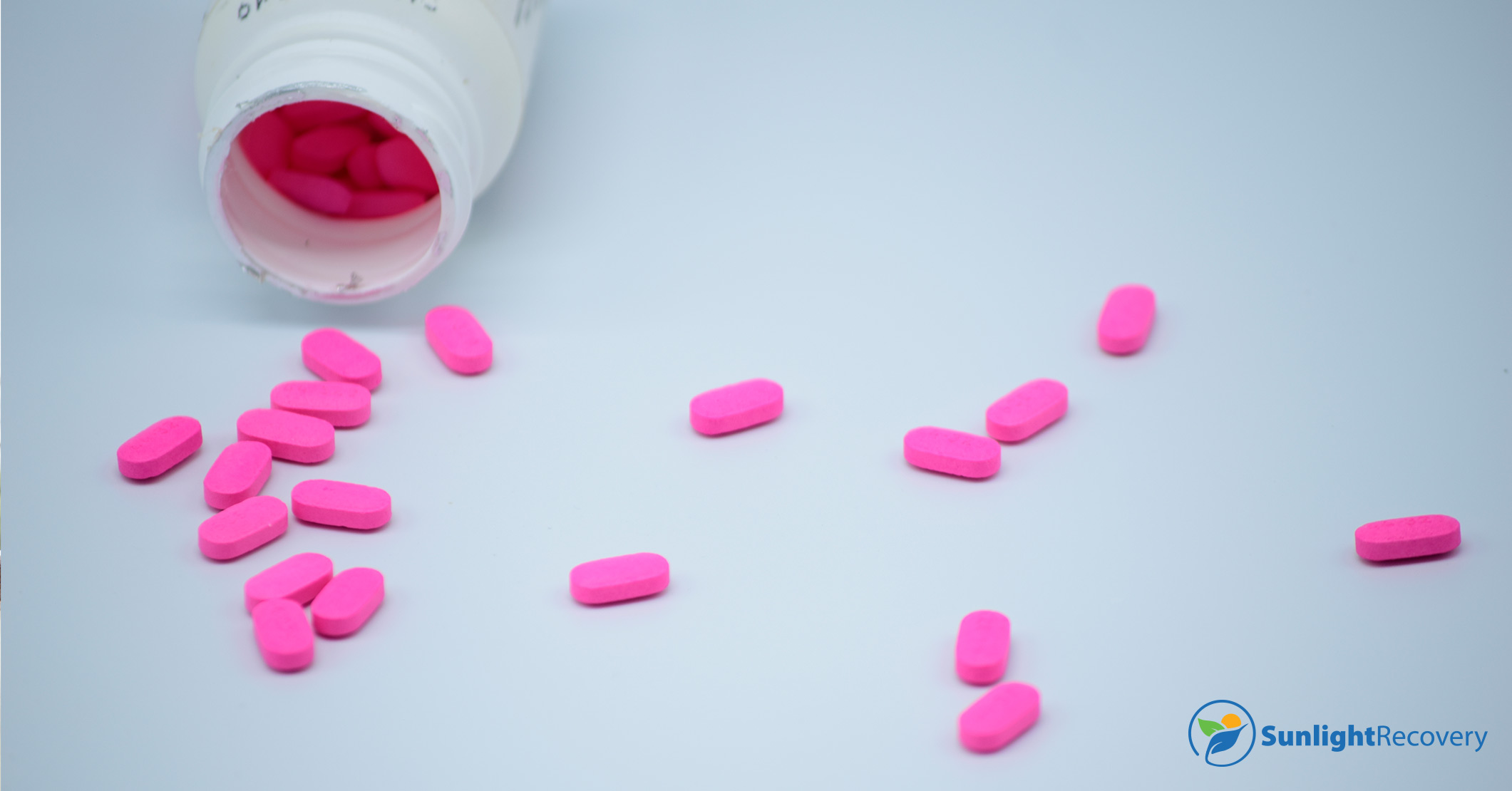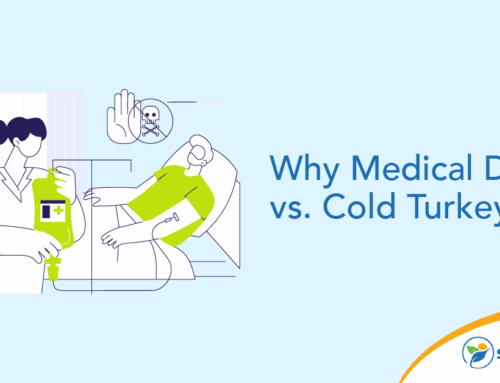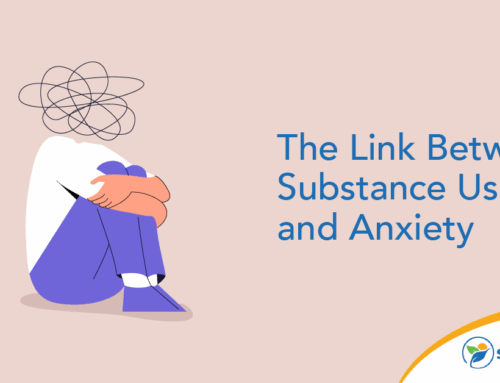An estimated 40 to 50 million people in the United States suffer from allergies, and around half of American adults who use medications to control allergy symptoms take antihistamine pills. While these drugs can reduce sneezing, itchy eyes, congestion and other symptoms, they can also cause side effects, particularly for those who take too much allergy medication. Let’s explore the risk factors and symptoms of an antihistamine overdose and learn how to use anti-allergy medicines safely.
Understanding Antihistamines
Allergies occur when the immune system identifies a harmless substance, such as pet dander or grass pollen, as a threat. The immune system releases chemicals that trigger an inflammatory response to protect the body.
Histamine is one of the key immune system chemicals involved in allergic reactions. Antihistamine medications work by interfering with the effects of histamine. While prescription versions of these drugs are available, most people take over-the-counter allergy medicines.
Two main types of OTC allergy medications exist, first-generation and second-generation.
- First-generation antihistamines include diphenhydramine (Benadryl), brompheniramine, dimenhydrinate (Dramamine) and doxylamine. These medications also act on the part of the brain responsible for controlling nausea, so they’re used to treat motion sickness in addition to allergies.
- Second-generation antihistamines include loratadine (Claritin), cetirizine (Zyrtec) and fexofenadine (Allegra). These medications affect different areas of the brain and spinal cord to provide longer-lasting relief from allergy symptoms.
Among prescription antihistamine medications, hydroxyzine is a unique option. In addition to blocking the effects of histamine, this drug interferes with the activities of the brain chemical acetylcholine, which controls arousal and involuntary muscle movements. Due to its actions, hydroxyzine has a calming effect on the body and mind and is sometimes prescribed for anxiety.
Can You Overdose on Allergy Medication?
Antihistamine overdoses can occur when you take too much of an anti-allergy medication. While many people associate overdoses with severe medical outcomes or even death, overdosing on allergy medication simply means exceeding the recommended dosage and experiencing adverse effects.
Some antihistamine overdoses are unintentional. Due to climate change and a longer, earlier growing season, many Americans experience more prolonged and severe allergy symptoms. As allergy seasons worsen, people may find that recommended antihistamine doses no longer adequately control their symptoms. Therefore, they may boost their dose above the recommended levels to find relief, increasing their risk of an overdose.
However, some people deliberately abuse certain antihistamines to experience their psychoactive effects. For example, taking too much diphenhydramine can cause euphoria, making it one of the most misused drugs in America.
First-generation antihistamines, also known as sedating antihistamines, are more likely to cause serious overdose symptoms than other anti-allergy medications. Benadryl, Dramamine and other first-generation medications can cause drowsiness and may interact with other medications, increasing the risk of serious side effects when taken excessively.
Second-generation antihistamines, or nonsedating antihistamines, are considered safer options because they don’t cross the blood-brain barrier like first-generation medications. They’re less likely to cause severe or life-threatening side effects, but you can still overdose on Allegra and other second-generation antihistamines if you exceed the recommended dose.
The effects of an antihistamine overdose can occur within an hour or two of ingesting the medication. Symptoms vary significantly depending on how much of the medication you take, your age and your overall health. Signs may include an abnormally fast or irregular heartbeat, visual disturbance and high or low blood pressure. First-generation antihistamine overdoses are more likely to cause neurological symptoms such as hallucinations and drowsiness.
Fortunately, most people recover from antihistamine overdoses with the right medical support. However, overdosing on allergy medication can occasionally lead to multiorgan failure, so seeking rapid assistance is essential. If you struggle to control your allergy symptoms, ask your doctor for advice instead of increasing your dosage or mixing antihistamines. Your provider can evaluate your condition to recommend a safe, effective treatment plan.
Dosing Recommendations: How Much Is Too Much Allergy Medication?
Over-the-counter and prescription antihistamines have clear dosing instructions. For most first-generation OTC medications, dosing recommendations advise taking the medication every 4 to 6 hours. The instructions for second-generation OTC antihistamines typically state that a person should take one pill every 12 or 24 hours.
However, these are average doses. How much medication you can safely take depends on several factors, including your age, the tablet strength and the medical problem you’re treating. Therefore, your doctor or pharmacist may recommend a different regimen.
Whether you’re taking antihistamines for allergies, anxiety or motion sickness, following the dosage instructions is essential to prevent an overdose. Read the packaging carefully, and take only the number of pills suggested as often as recommended unless a health care provider advises otherwise.
Potential Symptoms of an Antihistamine Overdose
Since antihistamines are available over the counter, you may think these medications won’t have side effects or pose any risk of overdose, but this isn’t the case.
Side Effects of First-Generation Antihistamines
Common side effects of first-generation antihistamines include:
- Blurred vision
- Constipation
- Dizziness
- Double vision
- Drowsiness
- Dry mouth
- Headaches
- Low blood pressure
- Rapid heart rate
- Thickening of mucus in the airways
- Trouble urinating
First-generation antihistamines have anticholinergic properties, which means they may increase the risk of dementia and side effects in older adults. Therefore, consulting a doctor before taking first-generation antihistamines is wise if you’re 65 or older.
Because first-generation antihistamines often cause drowsiness, people sometimes take them as sleep aids. Over time, the body can build up a tolerance to the medication, making it necessary to take more to feel drowsy. Taking more antihistamines than recommended to induce sleep can lead to an overdose.
Some people also intentionally take too much allergy medication to experience a high. At high doses, diphenhydramine can cause delirium, seizures, psychosis and even death.
Side Effects of Second-Generation Antihistamines
Potential side effects of second-generation antihistamines include:
- Abdominal pain
- Cough
- Fatigue
- Headache
- Nausea
- Sore throat
- Vomiting
People are less likely to abuse second-generation antihistamines because these medications don’t cause feelings of drowsiness the way first-generation allergy medications can. Most often, overdoses are accidental and occur when someone forgets they already took their daily dose. A single extra dose increases the risk of side effects but is unlikely to prove fatal.
As a result, Allegra, Zyrtec and Claritin overdose deaths are rare. However, any overdose can be dangerous, so you should still avoid taking more than the recommended dose.
Risk Factors for Antihistamine Overdose
Some people are at increased risk for antihistamine overdose due to other medications they take or medical conditions they have.
Other drugs that cause drowsiness can intensify the sedative effect of first-generation antihistamines. As a result, experts generally recommend that you don’t take these drugs with other sleep aids, muscle relaxants, sedatives, seizure medications and some antidepressants.
Diphenhydramine and narcotic pain relievers are an especially dangerous combination. From 2019 to 2020, antihistamines played a role in nearly 15% of overdose deaths, and the majority of these fatalities involved a combination of antihistamines and opioids. Diphenhydramine has also been shown to make the overdose rescue drug naloxone less effective, increasing the risk of death when a person overdoses.
Hydroxyzine can interact with all the drugs previously mentioned as well as other medications that suppress the activities of acetylcholine. As a result, your doctor may recommend a different antihistamine if you take tricyclic antidepressants, certain antipsychotics and some anti-nausea drugs.
Certain medical conditions can also heighten the risk of side effects of antihistamines and the risk of overdose. Generally, people with glaucoma, thyroid issues and heart disease should avoid first-generation antihistamines, and individuals with kidney or liver disease may not be good candidates for second-generation antihistamines.
Regardless of your health history, it’s wise to consult your medical provider before taking any OTC antihistamine for the first time. They can guide you on the proper dosage and advise you about potential side effects.
Seeking Medical Help
If you take too much allergy medication or suspect a loved one has done so, seek medical help right away. Prompt medical treatment can greatly reduce the risk of death due to an overdose of Zyrtec, Benadryl or another antihistamine.
If the person is awake and responsive, you can contact Poison Control for advice on the next steps. When someone is unconscious or delirious due to an overdose, call an ambulance.
Get Support for Allergy Medication Misuse
If you’re concerned about the effects of taking too much allergy medication to control symptoms of anxiety or misusing antihistamines, help is available. Sunlight Recovery offers substance use and mental health treatment programs, and our counselors are available 24/7 to explain your treatment options. Contact us today to learn more about how we can assist you.







